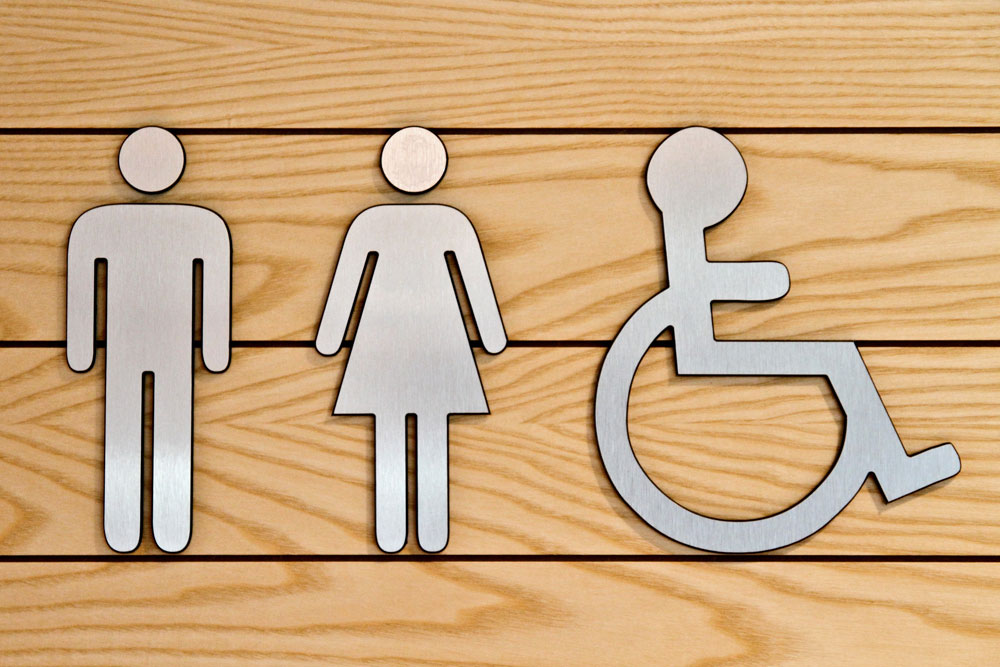This is how you prevent discrimination at the nursing home and create an inclusive environment
This article is written based on Swedish conditions. Hopefully it can be useful for those interested from other countries.
Preventing discrimination in healthcare is important. Discrimination sometimes occurs without us realizing it based on gender, origin, age or sexual orientation. In a nursing home, violations can occur from virtually all aspects. Both residents, staff, and relatives can be subjected to discrimination.
 Foto: Mostphotos
Foto: MostphotosStudies show that healthcare discriminates. For example, there are studies showing that men receive more assistance granted for the same disability as women. Research has often been based on male disease patterns and the elderly are not always given the same right to healthcare on equal terms as the law says. This can, for example, concern the possibility of seeing a psychiatrist if you live in a nursing home. We face new challenges. The proportion of older people who have lived in homosexual relationships will increase, which requires knowledge about LGBTQ issues. Similarly, the proportion of older people born in another country. What opportunities are there, for example, to get Persian food in a nursing home?
Values are a recurring theme. The above issues are very much about values. Here, both the organization and each employee's values become important. Discrimination can occur on many grounds in healthcare. It can be employees who, due to their prejudices or lack of knowledge, treat someone worse.
An important part of strengthening equality in healthcare is about how the healthcare provider as an employer handles employees. The right to full-time for those who work in healthcare is such an issue. Another is whether men and women are treated equally in the workplace.
Lex Sarah, the legislation against abusive treatment, is a good support for working against discrimination in the operation. Regularly talking about values and Lex Sarah is a way to increase awareness and thus reduce risks. Some operations ensure that the employees become LGBTQ-certified to increase awareness.
How you can work to prevent discrimination in nursing homes
Discrimination in nursing homes is a serious issue that can affect the well-being and safety of the residents. By actively working to prevent discrimination, the nursing home can create an inclusive and respectful environment where all residents and staff feel valued and treated fairly.
Education and conversation
Regular training: Training staff about what discrimination is and how it can manifest itself is an important first step. Regular training can include information about discrimination laws, rights and obligations, and how to identify and handle discriminatory behaviors.
Create awareness: Training should also focus on increasing awareness of prejudices and stereotypes. By challenging and reflecting on their own prejudices, employees can become more aware of how they can affect interaction with residents and colleagues.
Clear policies and procedures
Anti-discrimination policy: Implement a clear anti-discrimination policy that applies to everyone in the nursing home. This policy should contain guidelines on how discrimination should be handled and what consequences it will have if it occurs.
Reporting and follow-up: Create routines for easily reporting discrimination. Residents and staff should know that they can report discrimination without fear of reprisals, and that every report is taken seriously and followed up in an appropriate way.
Promote inclusion and diversity
Inclusive culture: Work to create an inviting culture at the nursing home where diversity is valued. This means respecting and celebrating different cultures, languages, religions, and lifestyles among the residents and staff.
Social activities: Arrange social activities that encourage interaction and community among residents and staff from different backgrounds. For example, cultural events, language clubs, or theme days that highlight different traditions can be carried out.
Support and advice
Available support services: Offer support and advice to those who experience or witness discrimination.
Support for staff: Give staff access to training and resources to better understand and handle discrimination situations. This can include training in conflict management, mediation and empathetic listening.
Promote participation and influence
Resident Council: Establish a resident council where the residents have the opportunity to express their opinions and participate in decisions that affect their everyday life. This promotes participation and can reduce the risk of discrimination by giving the residents a voice.
Staff influence: Encourage staff to participate in the development of workplace culture and policies. By involving all levels of staff in this work, everyone can feel involved and responsible for creating a discrimination-free environment.
Regular evaluation and improvement
Evaluate and adjust: Regularly evaluate how well the nursing home is working to prevent discrimination. By collecting feedback from both residents and staff, areas that need improvement can be identified and necessary measures can be taken.
Continuous improvements: Discrimination is a complex issue, and the work to prevent it must be ongoing. By continually improving and adjusting strategies and routines, the nursing home can ensure that everyone feels welcome and valued.
Reflection questions - discrimination:
Care staff
- Does anyone in the team express derogatory comments about other people or groups of people?
- Are there any residents who are treated worse as a result of a staff member not liking them?
- Do you have a colleague who you do not treat fairly?
Manager, nurse, occupational therapist and physiotherapist:
- Have you had any Lex Sarah cases concerning treatment?
- How do you work with treatment issues?
- How do you follow up on the treatment in the unit? Do you have training to increase awareness of attitudes and violations?
- Are the staff treated correctly from these perspectives?
Residents and relatives:
- Does the staff behave properly and professionally?
Erland Olsson
Specialist nurse
Sofrosyne - Better care every day

Aktuellt i media
- 2026-01-19 04:12 14 Läkemedelshantering
-
2026-01-08 04:00
13 Hygien
By changing work clothes at least once a day, the risk of spreading infection decreases.
info Foto: Mostphotos
Foto: Mostphotos - 2025-12-29 04:00 08 Förebyggande o lokaler
-
2025-12-18 04:00
16 Sjukdom och död
Survivor conversations - an important element in working with next of kin
info Bild från Summer Stock
Bild från Summer Stock - 2025-12-15 04:00 17 Psykisk hälsa
- 2025-12-11 04:00 07 Riskhantering





